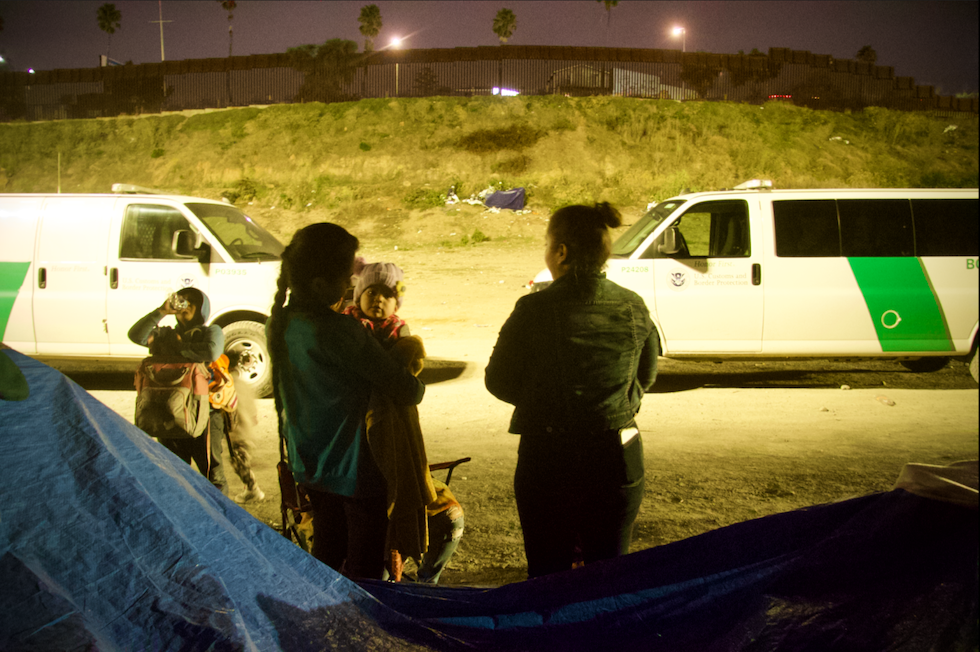
The Border Patrol’s San Diego Sector is once again holding hundreds of asylum-seeking migrants in makeshift open-air detention areas in violation of its obligations to Customs and Border Protection’s (CBP) national standards. These standards specify how CBP agencies, including the Border Patrol, need to transport, escort, detain, and search people under their custody. By not abiding by the national standards, it is placing migrants at risk of further harm.
At least four open-air sites are located west of the San Ysidro Port-of-Entry and three more in the small desert town of Jacumba, about 60 miles east of San Diego, where resources are scarce.
From March to May of this year, the Border Patrol held migrants under similar conditions for days, under a hot sun during the day and cold temperatures at night. Community-based organizations responded by setting up support stations along the secondary 30-ft border barrier in San Diego. The stations provided migrants with food, and water, addressed basic medical needs, and charged mobile phones.
In Jacumba, where migrants are not restrained between border walls, advocates provided the same humanitarian aid under even more extreme weather conditions. Hunger and dehydration, mixed with an uncertainty of what comes next, have a physical and emotional toll on all who have already left everything they know to seek asylum.
The Southern Border Communities Coalition filed a complaint in May alleging cruel and degrading treatment. Consequently, the Office of Field Operations, another CBP component, stepped in and processed hundreds of migrants so that they could be quickly removed from being held out in the open without protection.
In recent weeks, men, women, and children from Vietnam, China, Thailand, Brazil, Venezuela, Colombia, Mexico, Uzbekistan, Russia, India, Turkey, Costa Rica, Bolivia, Iran, Ecuador, Jamaica, Senegal, and other countries, have passed through the area between the border barriers. Migrants have arrived wet from having crossed a canal. Several have arrived with injuries from crossing over the primary border wall, and advocates have addressed their injuries through the border barrier and have provided dry clothing when available.
Medical emergencies are difficult to address when a trip to the emergency room might mean that migrants will not receive the necessary paperwork to proceed with an asylum claim. When a woman who had slipped from the primary border wall with her 1-year-old child strapped to her back complained of knee pain and visible bruising on her hands, she then refused to be hospitalized when a Border Patrol agent informed her, she would remain undocumented because the agency would not provide her with paperwork stating she feared returning to her home country.
Advocates have identified other migrants with urgent medical needs that Border Patrol has called 911 services to pick up, including a Vietnamese man who fainted from heat exhaustion.
While communication with Border Patrol officials remains mostly cordial, advocates have had to address threats of arrest and have had to negotiate to feed an encampment of men that is about one mile west of where they have set up the support stations.
Once Border Patrol picks up migrants, Border Patrol takes them to their short-term holding facilities for processing. It is not unusual for families to be separated here, then released separately where they have no information about where to locate their separated family members.
CBP officials are describing this as the “new normal.” It is concerning that degradation of human rights and demeaning treatment should be normalized for people seeking safety from harm.
